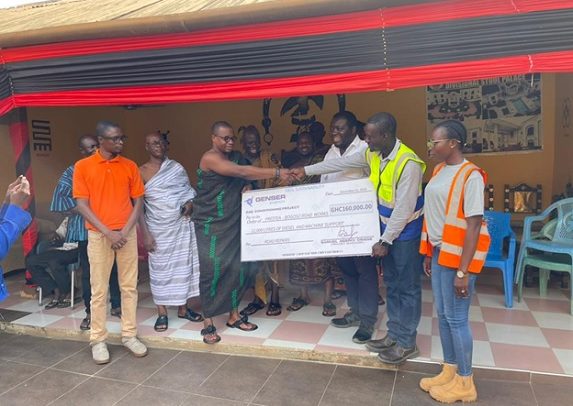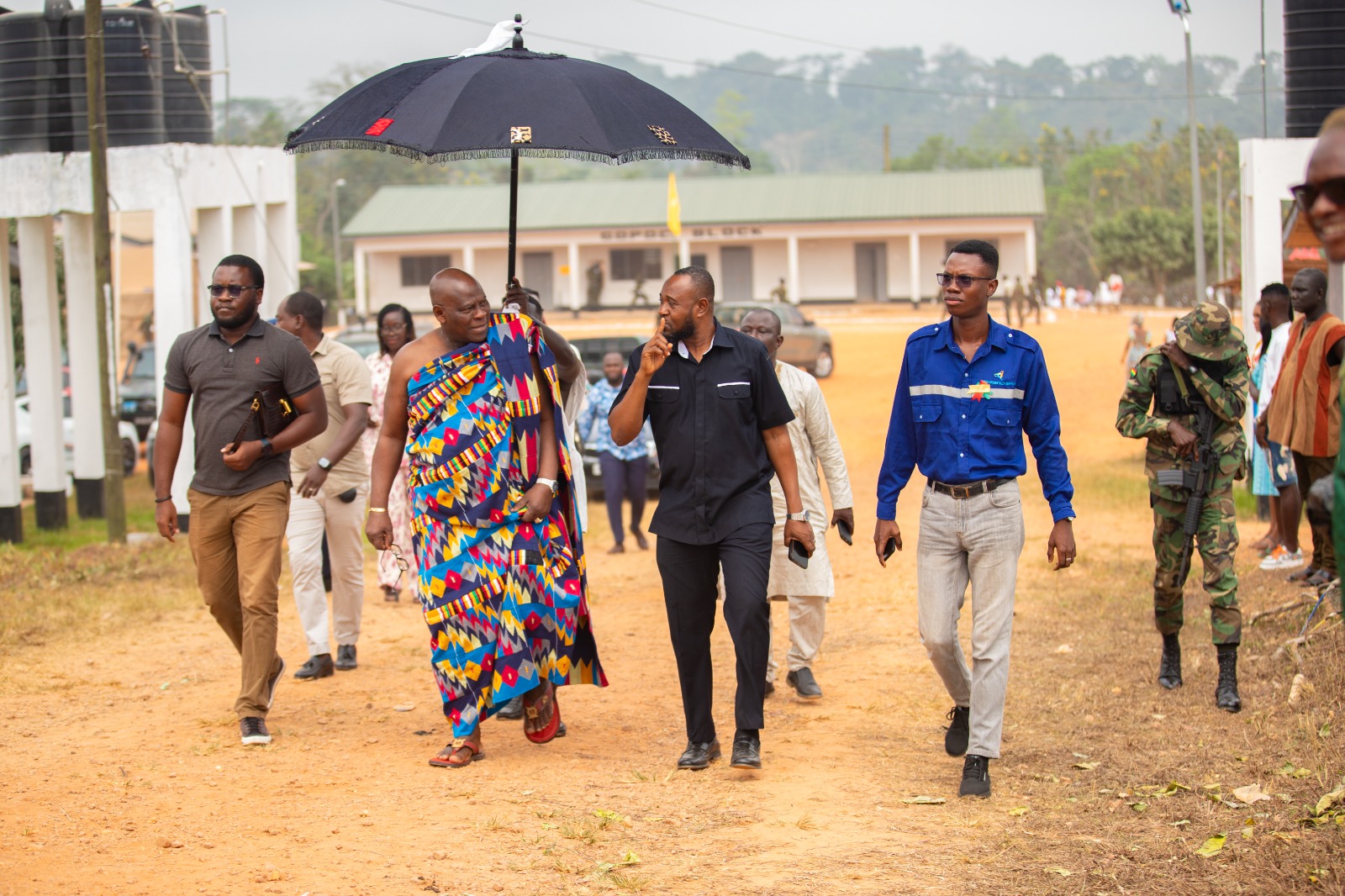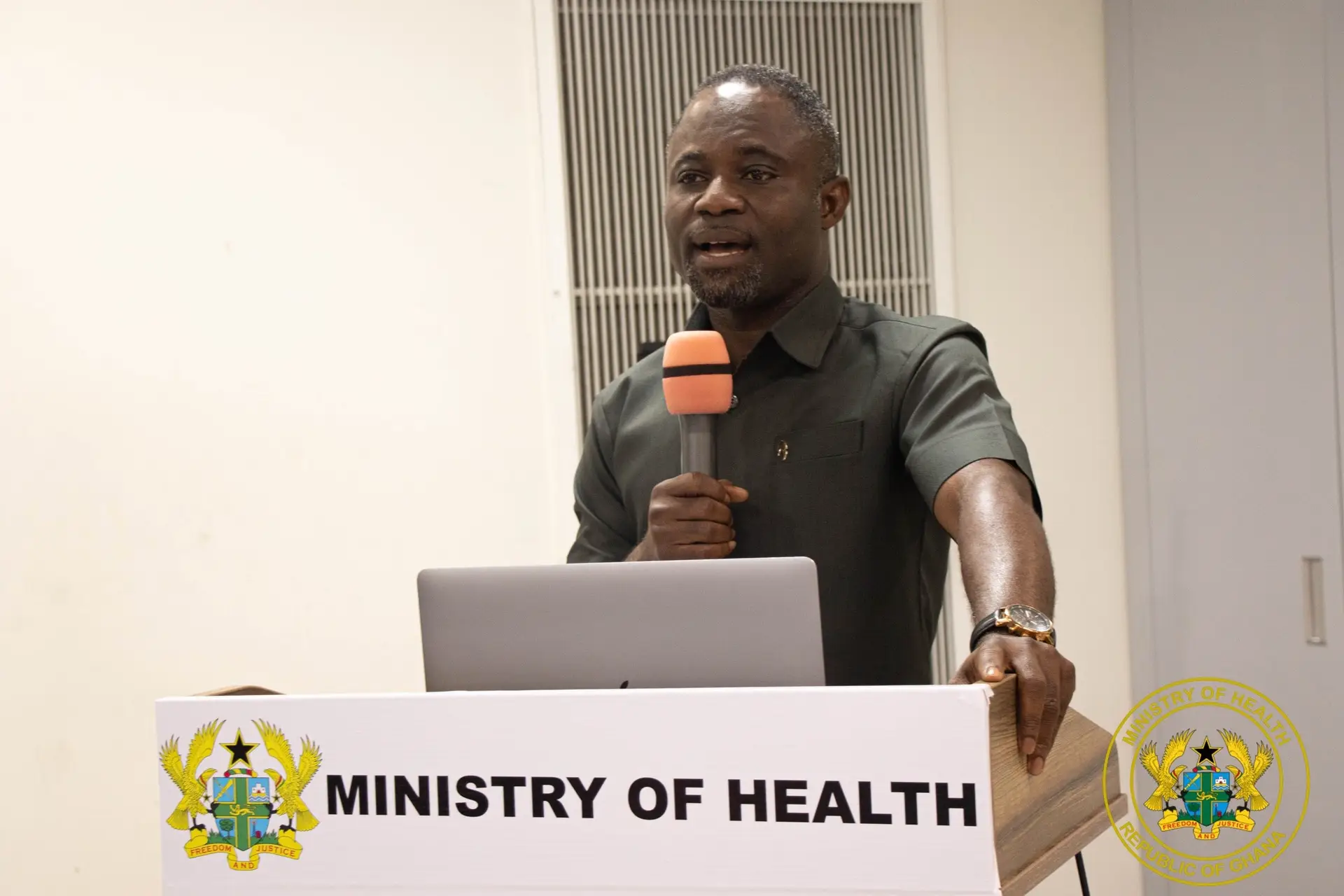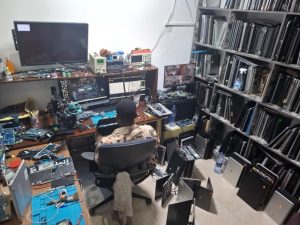
Education has long been heralded as the bedrock of national progress. But in Ghana, where the energy sector is rapidly evolving and the demand for skilled professionals is rising, one private company is helping bridge the often-cited gap between the classroom and the industrial world.

Genser Energy, a diversified energy provider, is transforming how technical education is delivered across the country, investing not only in infrastructure, but in people. Through strategic partnerships with leading universities and hands-on industrial training, Genser Energy is empowering the next generation of engineers, technicians, and energy experts.
A classroom beyond walls
Since launching its industrial training program, Genser Energy has provided more than 400 students from institutions such as Kwame Nkrumah University of Science and Technology (KNUST), the University of Mines and Technology (UMaT), and Takoradi Technical University (TTU) with on-site experiences at key operational hubs, including GP Damang, GP Wassa, and the Anwomaso Branch and Metering Station (ABMS) near Kumasi.

“By allowing students to engage directly with engineering and operational processes, we aim to provide practical skills that complement their academic knowledge,” said Daniel Ayi, Vice President of Operations (Power) at Genser Energy.
The approach is already changing lives. For Emmanuel Mensah, a final-year mechanical engineering student at UMaT, the visit to Genser’s ABMS facility was nothing short of transformative.
“Before visiting Genser, I only understood energy systems in theory,” he said. “Seeing the turbines and operations up close gave me a new perspective. It’s inspiring to witness the technologies I’ve only read about come to life.”

Akua Nkrumah, an electrical engineering student at TTU, shared a similar sentiment: “Genser Energy made me feel that there’s a place for women in this industry. Seeing female engineers thrive here motivates me to push harder and aim higher.”
Prioritizing health, safety, and environment (HSE) training
Integral to these site visits is Genser Energy’s unwavering commitment to Health, Safety, and Environment (HSE) standards. Every student and visitor undergoes comprehensive HSE training, ensuring they understand the protocols and practices that safeguard both personnel and the environment.

“Safety is not just a policy; it’s part of our culture,” emphasized Ayi. “We instill this mindset in our employees and extend the same rigorous training to our visitors. It’s essential that everyone who steps onto our sites is equipped with the knowledge to operate safely and responsibly.”
This emphasis on HSE is reflected in Genser’s daily operations, where continuous training sessions are conducted to reinforce safety practices and environmental stewardship among staff.

Stephen Davor, HSE Superintendent at Genser Energy, added: “Our goal is to make safety second nature. Whether you’re a technician, student, or executive, HSE awareness is part of your daily responsibility. It’s how we protect lives and ensure sustainable operations.”
Investing in tools. Investing in dreams.
Genser’s contributions go beyond experiential learning. In a significant gesture in 2023, the company donated a gas turbine package worth $1.2 million to TTU—the first of its kind at any university in Ghana. The equipment is already reshaping the school’s engineering curriculum and giving students access to the same machinery used in global power plants.

“This equipment gives our students a competitive edge,” said Dr. Kwasi Boateng, a senior lecturer at TTU. “They’re now working with the same systems used internationally, which prepares them for global opportunities.”
For Annie Andoh, a final-year student in Electrical/Electronics engineering, the turbine represents a dream realized. “It’s a once-in-a-lifetime opportunity,” she said. “We’re learning skills that most students elsewhere can only read about.”
Learning from the experts
Genser’s training efforts also include classroom engagements led by industry professionals. One recent seminar, held in partnership with TTU’s Department of Oil and Natural Gas and the Department of Marine Engineering and Nautical Studies, introduced over 150 students to the intricacies of oil and gas terminal operations.
The session was led by Carlos Estaban Laya Marquez, Senior Naval Engineer at Genser Energy, who brought not only technical expertise but a unique cross-cultural perspective to the classroom.
“Teaching the next generation and giving back to Ghana, my host country for the past eight years, is both an honor and a privilege,” Laya Marquez said. “The warmth, generosity, and rich culture of Ghana have made this journey even more meaningful. Medaase to all my colleagues and my new friends at TTU for their kindness and shared passion for learning.”
Following the seminar, students visited Genser’s Takoradi Natural Gas Liquids Terminal (TNET) project site, which is currently under construction. The TNET facility is designed to include a 10,000-cubic-meter cryogenic butane tank and a 30,000-cubic-meter cryogenic propane tank for the storage and export of natural gas liquids (NGLs). The site will enhance Ghana’s energy infrastructure by providing critical storage solutions for NGLs, supporting both domestic energy needs and export potential.
Global partnerships, cross-cultural impact
While Genser’s mission is deeply rooted in Ghana, its reach is increasingly global. A recent collaboration with Georgetown University’s Dikran Izmirlian Program in Business and Global Affairs exemplifies the cross-cultural and educational exchange Genser fosters.
As part of a months-long collaboration, students from Georgetown’s McDonough School of Business and the Walsh School of Foreign Service worked with Genser on sustainable energy projects. Their work culminated in a weeklong trip to Ghana in 2024, where students toured Genser’s Damang and Tarkwa power plants, visited the Gold Fields mines, and explored the upcoming TNET facility, gaining immersive exposure to real-world energy production.
“Genser’s team was extremely gracious in welcoming us to their industrial sites,” said Georgetown student Courtney Mawet. “Learning about gas and energy from experts at the source in Ghana was an incredible educational experience and certainly not something we get to see regularly.”
“The opportunity to physically see the Genser sites complemented our coursework on the clean energy transition and energy independence,” added Abigail Smith, a fellow Georgetown student.

These joint projects are just one of many. Genser has also partnered with Howard University, where two MBA cohorts have selected Genser Energy as their capstone project. These initiatives have produced in-depth strategic analyses and actionable recommendations on market expansion, sustainability, and operational scaling, demonstrating how academic collaboration can drive meaningful, real-world impact.
Developing talent from within
In parallel with its external partnerships, Genser has also prioritized internal capacity building. Through a collaboration with the University of Florida, select employees from across the company have participated in executive education and graduate-level coursework in areas such as strategic management and construction engineering.
These programs ensure Genser’s workforce remains not only competitive in the global energy industry but also on the cutting edge of research and innovation.

“This dual approach, training the next generation of engineers while also investing in our existing talent ensures that Genser stays agile and informed,” said Ayi. “It’s about future-proofing our company and the sector at large.”
A long-term vision rooted in innovation
More than a corporate initiative, Genser’s investment in education reflects a deeper philosophy: that Ghana’s future lies in the potential of its youth. By fostering early exposure to industrial operations and cultivating talent from the ground up, the company is contributing to social mobility and national economic resilience.
“Education is at the core of our mission,” said Ayi. “Through this initiative, we aim to nurture the talent that will lead Ghana’s energy transition in the years to come.”
And the journey is far from over. Genser Energy is actively seeking new, innovative ways to ensure the program remains relevant, inclusive, and competitive in a rapidly changing global landscape. With each site visit, seminar, and hands-on training opportunity, it continues to power not just the energy grid, but Ghana’s future itself.
The post Powering Futures: How Genser Energy Is Fueling Education And Opportunity In Ghana appeared first on The Ghanaian Chronicle.
Read Full Story



















Facebook
Twitter
Pinterest
Instagram
Google+
YouTube
LinkedIn
RSS